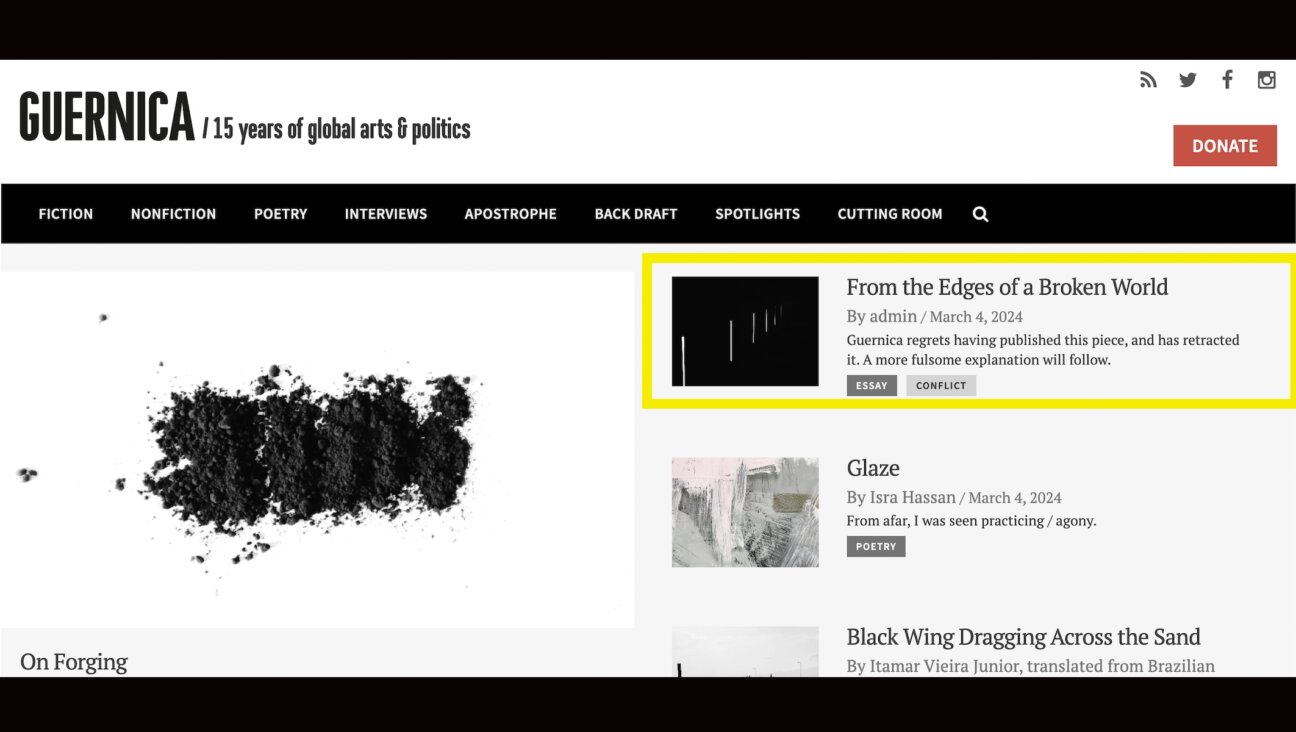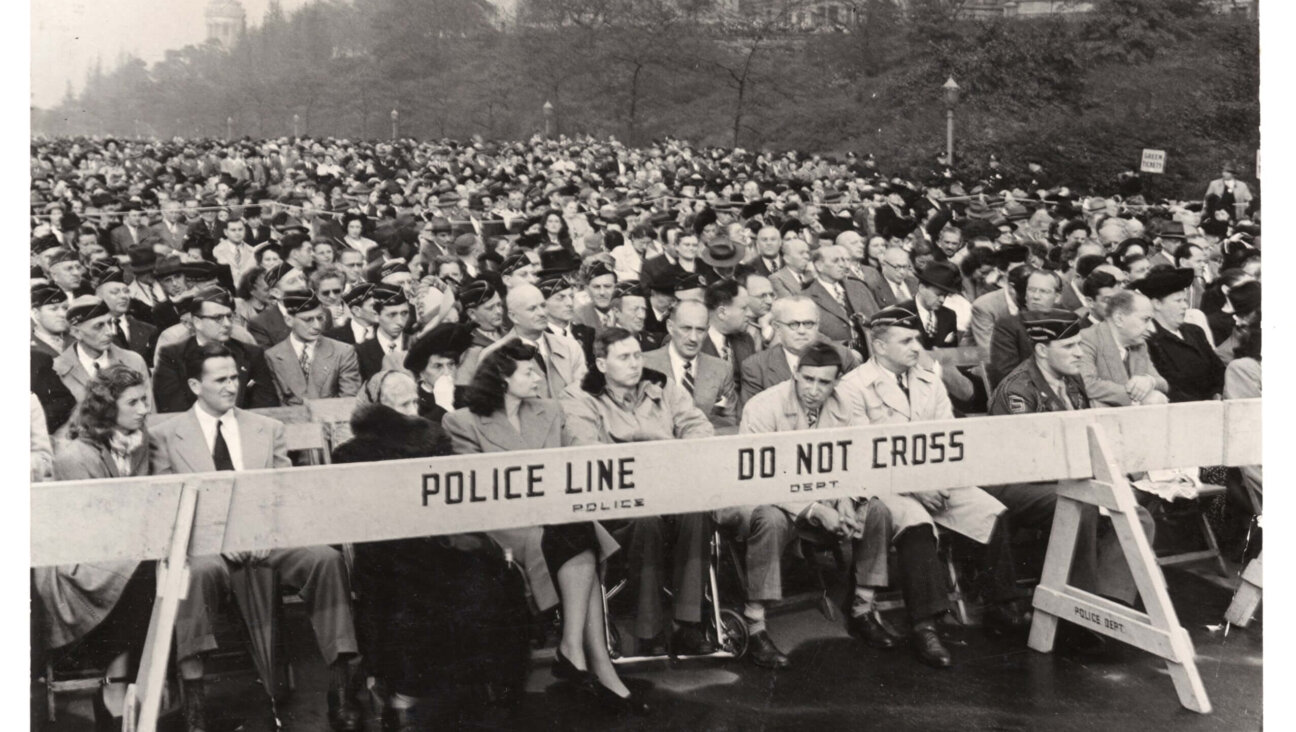September 24, 2004
In Bush We Trust
Columnist Leonard Fein finds it difficult to understand why 46% of voters “imagine that Bush is more trustworthy than Kerry regarding Supreme Court nominations” (“Heads I Win, Tails You Lose,” September 17). As a member of that 46%, let me explain.
A president’s Supreme Court nominations are more likely to be related to his overall ideology than to his personal trustworthiness. Bush, as a conservative, will pick conservative justices. Conservative judges are typically more deferential to state and local governments on moral issues — that is, more likely to allow state and local governments to decide that marriage should be limited to man-woman relationships, to give police more discretion to enforce the law, and to allow state and local governments to regulate abortion more closely.
By contrast, Kerry’s voting record on social issues is solidly liberal. So Kerry appointees are more likely to use the Constitution as a tool to force states to allow gay marriage, or to adopt liberal policies on crime, abortion and other social issues.
So even if you generally believe that Kerry is a more trustworthy and better human being than Bush, or think Kerry would be a better president in every other respect (perhaps because of skyrocketing budget deficits, growing poverty, the situation in Iraq, etc.), you still might consider Bush “more trustworthy” as to Supreme Court nominations if you are not a 100% liberal on social issues, or believe that even if judges are personally liberal they should give state and local governments the benefit of the doubt. And if you believe all these things, you just might be a swing voter.
Michael Lewyn
Visiting Associate Professor
Southern Illinois University School of Law
Carbondale, Ill.
What the Survey Says
Your article about the study I conducted with Steven Windmueller on the merger that created United Jewish Communities needs clarifying on two points, which I apparently did not explain to your reporter clearly (“Merger of Communal Groups Yields Disappointment,” September 17).
In our research for the study we interviewed about 80 people. Only one person we approached refused to be interviewed, and he was not a major participant in the merger discussions. Another 10 people were sent questionnaires, and five of them responded.
I also want to emphasize that while the article cited me mentioning the Jewish communal work of Howard Rieger and Martin Kraar, I was simply conveying what others we had interviewed said about them. In our study we did not, as its authors, offer an opinion of their work or discuss any other individual by name, except to convey what others had said.
Gerald Bubis
Los Angeles, Calif.
Perennial Questions
Zackary Sholem Berger credits the book “Golems Among Us” with presenting novel parallels between the golem figure and biotechnology issues (“Letting Loose the Golem on Society’s Dilemmas,” September 10). It’s interesting to note that Norbert Wiener’s “God & Golem, Inc.,” published in 1963 by MIT Press, examined the religious issues inherent in cybernetics (a term he coined). Clearly, questions about the Maker and the made are continuously compelling.
Alex Silberman
High Falls, N.Y.
Mistaken on Massacre
Because there were some Arabs who rescued Jews during the Hebron massacre of 1929, Russell Miller writes in his September 3 letter to the editor that “the Hebron riots are a story of hope, as much as they were one more nightmare for the Jews” (“Story of Hope in Hebron”).
Does Miller also believe that the Holocaust is “a story of hope” because there were some Christians who rescued Jews?
Michael Spielholz
Bayside, N.Y.

I hope you appreciated this article. Before you go, I’d like to ask you to please support the Forward’s award-winning journalism this Passover.
In this age of misinformation, our work is needed like never before. We report on the news that matters most to American Jews, driven by truth, not ideology.
At a time when newsrooms are closing or cutting back, the Forward has removed its paywall. That means for the first time in our 126-year history, Forward journalism is free to everyone, everywhere. With an ongoing war, rising antisemitism, and a flood of disinformation that may affect the upcoming election, we believe that free and open access to Jewish journalism is imperative.
Readers like you make it all possible. Right now, we’re in the middle of our Passover Pledge Drive and we need 500 people to step up and make a gift to sustain our trustworthy, independent journalism.
Make a gift of any size and become a Forward member today. You’ll support our mission to tell the American Jewish story fully and fairly.
— Rachel Fishman Feddersen, Publisher and CEO
Join our mission to tell the Jewish story fully and fairly.
Our Goal: 500 gifts during our Passover Pledge Drive!
























